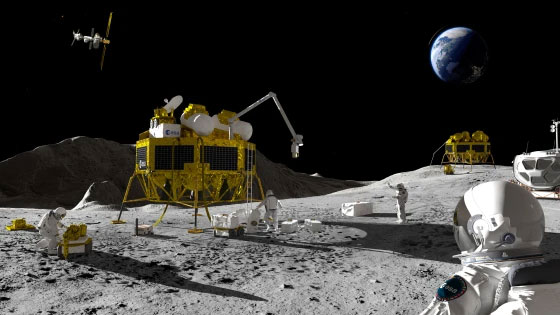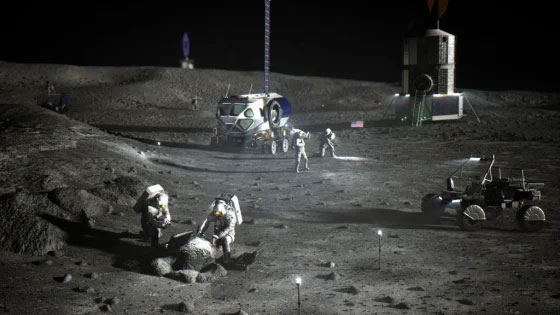Should have a timezone for the Moon?
From Pacific Time to Eastern Time and Greenwich Mean Time, the world has long relied on synchronized clocks to keep us in harmony. But as we embark on numerous lunar missions, including plans to establish bases and habitats on the moon, the European Space Agency suggests it may be time to consider Moon Time as a universal standard.
Traditionally, time in space has been calculated based on Earth time. However, with different nations gearing up to operate on and around the moon, the need for a universally accepted method of lunar timekeeping is becoming increasingly apparent.

A standard time zone for the moon could allow for more precise guidance and navigation on the lunar surface.
The benefits of establishing a standard lunar time zone are manifold. It would facilitate collaboration between space agencies worldwide and ensure more accurate guidance and navigation on the lunar surface. Yet, there are significant challenges to overcome.
One pressing issue is determining which space agency should be responsible for creating and maintaining "moon time." Additionally, the debate revolves around whether this new time zone should be linked to Earth time or operate independently.
Another complexity arises when it comes to calculating lunar time. Moon clocks gain approximately 56 microseconds per day, making them tick slightly faster than Earth clocks. Moreover, these tiny variations vary by location, meaning that clocks on the moon do not run at the same rate as those in lunar orbit.
Bernhard Hufenbach from the European Space Agency's Directorate of Human and Robotic Exploration pointed out the practical challenges astronauts would face. On the moon's equatorial region, each day lasts approximately 29.5 Earth days, including long and freezing lunar nights. In this harsh environment, establishing a functional lunar time system presents a considerable challenge.

An illustration of NASA astronauts on the lunar South Pole
Nonetheless, finding a solution for lunar timekeeping is a vital step, as it opens the door to similar time systems for other planetary destinations in the future. The prospect of Moon Time may soon join our earthly timekeeping standards, as humanity's reach extends beyond our home planet.
However, the significance of standard timekeeping in space goes beyond astronauts and ground controllers merely keeping track of time on the moon. It plays a crucial role in guidance and navigation, much like how GPS systems on Earth rely on precise coordination and timing.
In the context of the moon, any infrastructure built and operated there will require meticulous time synchronization, especially as we move towards establishing a more permanent lunar presence.
Traditionally, moon missions have employed deep space antennas to maintain synchronization with Earth time. However, European space officials argue that this method may not be sustainable as humans seek to establish a lasting foothold on the lunar surface.
Many of these conversations are already in progress as part of NASA's "LunaNet" initiative. This initiative aims to develop technologies, techniques, and standards for lunar communication and navigation, forming a vital component of NASA's broader Artemis program. The Artemis program seeks to establish lunar bases and conduct regular missions to the moon as a stepping stone toward future missions to Mars.
In November, space officials convened at the European Space Research and Technology Centre in the Netherlands to discuss the path forward. During this meeting, there was unanimous agreement on the importance and urgency of defining a universal lunar reference time. This reference time should be internationally accepted, serving as the common standard that all lunar systems and users can refer to.
Pietro Giordano, a navigation system engineer at the European Space Agency (ESA), emphasized the collaborative nature of this effort, stating, "A joint international effort is now being launched towards achieving this goal." As we venture further into the cosmos, establishing a universal lunar time standard is a pivotal step in ensuring the success and coordination of future lunar missions and beyond.

0 Comments
Leave a Comment
Your email address will not be published. Required fields are marked *